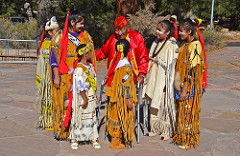The American Revolutionary War lasted from 1775-1783. This fight between Great Britain and its thirteen colonies was the result of years of growing conflict. After the French and Indian War that occurred between 1754 and 1763, the British government began requiring the colonies to pay higher taxes. Over time, protests and conflict led to a tightening of control by the Mother Country.
Great Events In American History

Major Events in World History
The Monroe Doctrine; named for president James Monroe who delivered it in a speech to Congress in 1823, it was the most important assertion to date of United States’ foreign policy in history. This statement of position would dictate the policy of the United States in international affairs for years to come.
Martin Luther king’s assassination took place when he was standing on the balcony of his room at the Lorraine Motel in Memphis, TN, now lay sprawled on the balcony’s floor. In outrage of the murder, many blacks took to the streets across the country in a massive wave of riots. The FBI investigated the crime, but many believed them partially or fully responsible for the assassination.
In 1789 the first President of the US, George Washington, was elected. The assassination of ex-president Kennedy in 1963 is another Great Events In American History. World War 1 was fought between 1914 and 1918, though the United States did not enter the war until 1917. The causes of World War 1 are complicated and based on years of entangling alliances and competition between nations.
When events began happening in Europe that would eventually lead to World War 2, many Americans took an increasingly hard line towards getting involved. World War 1 had caused an increased desire for isolationism amongst the American people. However, the bombing of Pearl Harbor in 1941 led to America’s involvement in the war.
Economics dominated politics in the 1930’s. The decade began with shanty towns called Hoovervilles, named after a president who felt that relief should be left to the private sector, and ended with an alphabet soup of federal programs funded by the national government and an assortment of commissions set up to regulate Wall Street, the banking industry, and other business enterprises.
The Social Security Act of 1935 set up a program to ensure an income for the elderly. The Wagner Act of 1935 gave workers the legal right to unionize. John L. Lewis founded the Congress of Industrial Organizations (CIO) and conditions for blue-collar workers improved. Joseph P. Kennedy, a Wall Street insider, was appointed Chairman of the Securities and Exchange Commissions.
US history timeline 1900s, important dates in American history, most important events in world history, 100 most important events in world history, us history timeline 1800s, historical events that changed the world, top 10 historical events
